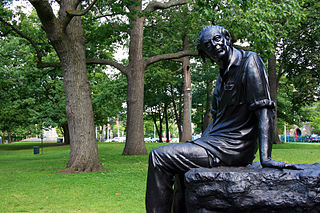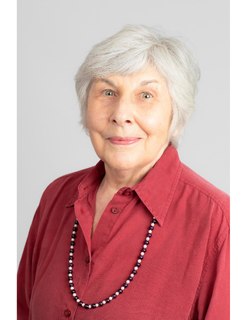A Quote by Roald Dahl
Pear Drops were exciting because they had a dangerous taste. All of us were warned against eating them, and the result was that we ate them more than ever.
Related Quotes
I saw a very old man, literally eating his own human waste out of hunger. I went to the nearby hotel and asked them what was available. They had idli, which I bought and gave to the old man. Believe me, I had never seen a person eating so fast, ever. As he ate the food, his eyes were filled with tears. Those were the tears of happiness.
Jesus Christ left us an example for our daily conduct. He felt no bitter resentment and He held no grudge against anyone! Even those who crucified Him were forgiven while they were in the act. Not a word did He utter against them nor against the ones who stirred them up to destroy Him. How evil they all were. He knew better than any other man, but He maintained a charitable attitude toward them.
All of us have many habits of whose import we are quite unaware, since they were formed without our knowing what we were about. Consequently they possess us, rather than we them. They move us; they control us. Unless we become aware of what they accomplish, and pass judgment upon the worth of the result, we do not control them.
When the great religious and philosophical conceptions were alive, thinking people did not extol humility and brotherly love, justice and humanity because it was realistic to maintain such principles and odd and dangerous to deviate from them, or because these maxims were more in harmony with their supposedly free tastes than others. They held to such ideas because they saw in them elements of truth, because they connected them with the idea of logos, whether in the form of God or of a transcendental mind, or even of nature as an eternal principle.
These boys, now, were living as we'd been living then, they were growing up with a rush and their heads bumped abruptly against the low ceiling of their actual possibilities. They were filled with rage. All they really knew were two darknesses, the darkness of their lives, which were now closing in on them, and the darkness of the movies, which had blinded them to that other darkness, and in which they now, vindictively, dreamed, at once more together than they were at any other time, and more alone.
I very classically would go into manic phases, which were as dangerous, if not more so, than the depressed phases, and I think I'd come up with the best ideas I ever had, and then the next day, I'd look at them and be like, 'This is nonsense,' because it was born out of a manic episode. What a waste of time.
There were always more Negroes in the field than there was Negroes in the house. The Negro in the field caught hell. He ate leftovers. In the house they ate high up on the hog. The Negro in the field didn't get nothing but what was left of the insides of the hog. They call 'em "chitt'lin'" nowadays. In those days they called them what they were: guts. That's what you were -- a gut-eater. And some of you all still gut-eaters.
People were actually 6 times more likely to buy a jar of jam if they had encountered 6 than if they encountered 24, so what we learned from this study was that while people were more attracted to having more options, that's what sort of got them in the door or got them to think about jam, when it came to choosing time they were actually less likely to make a choice if they had more to choose from than if they had fewer to choose from.
We were not having any fun, he had recently begun pointing out. I would take exception (didn't we do this, didn't we do that) but I had also known what he meant. He meant doing things not because we were expected to do them or had always done them or should do them but because we wanted to do them. He meant wanting. He meant living.
It was so much easier to blame it on Them. It was bleakly depressing to think that They were Us. If it was Them, then nothing was anyone's fault. If it was us, what did that make Me? After all, I'm one of Us. I must be. I've certainly never thought of myself as one of Them. No one ever thinks of themselves as one of Them. We're always one of Us. It's Them that do the bad things.
You could look out the window today, see the sky raining fire, and say that it has all been for nothing, everything we've ever done, because now we've lost. But folk were born and lived and knew friendship and music in this city, ugly as it is, and all across this land that we fought for. Some grew old, and others were less lucky. Many bore children and raised them, and had the pleasure of making them, too, and we gave them that for as long as we could. Who has ever done more, my friend?
The little incidents and accidents of every day fill us with emotion, anxiety, annoyance, passion, as long as they are close to us, when they appear so big, so important, so serious; but as soon as they are borne down the restless stream of time they lose what significance they had; we think no more of them and soon forget them altogether. They were big only because they were near.







































